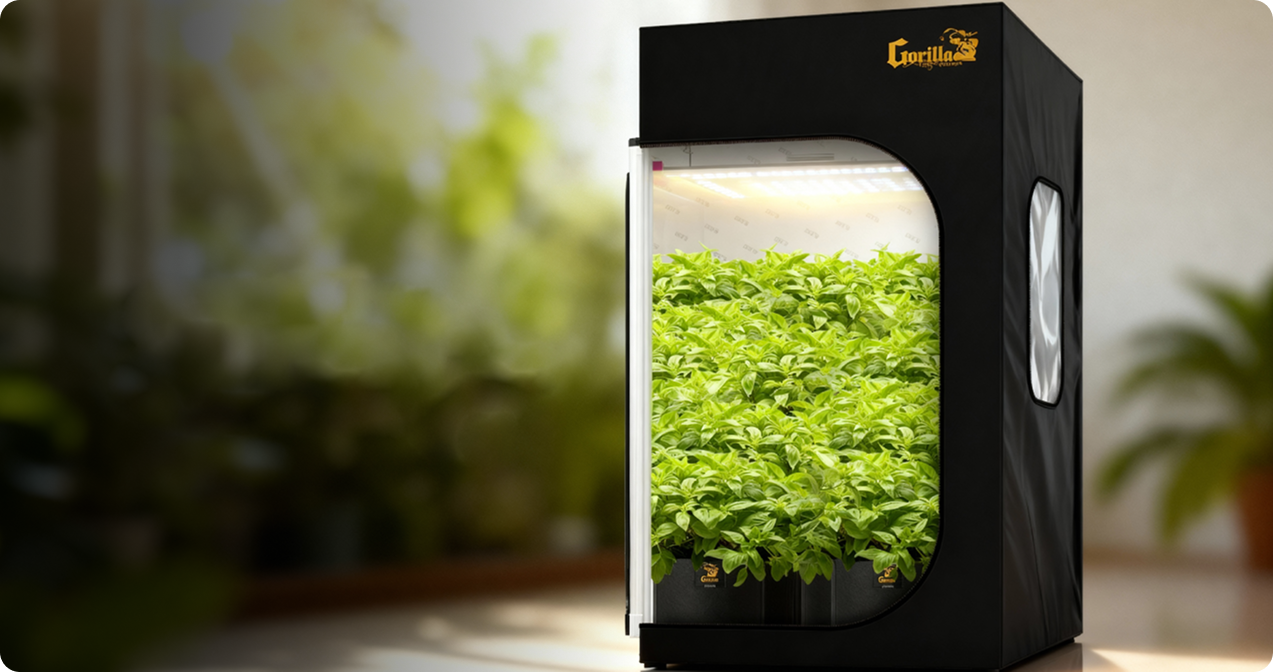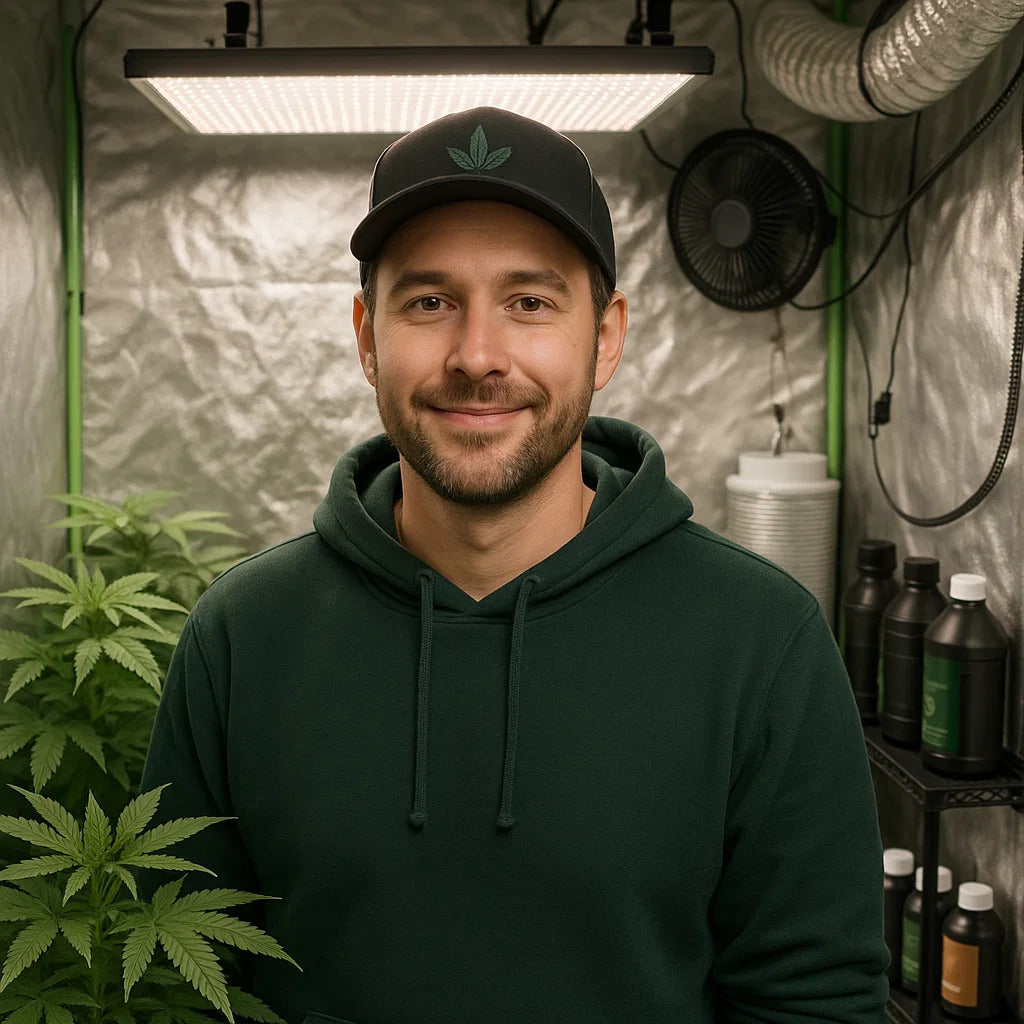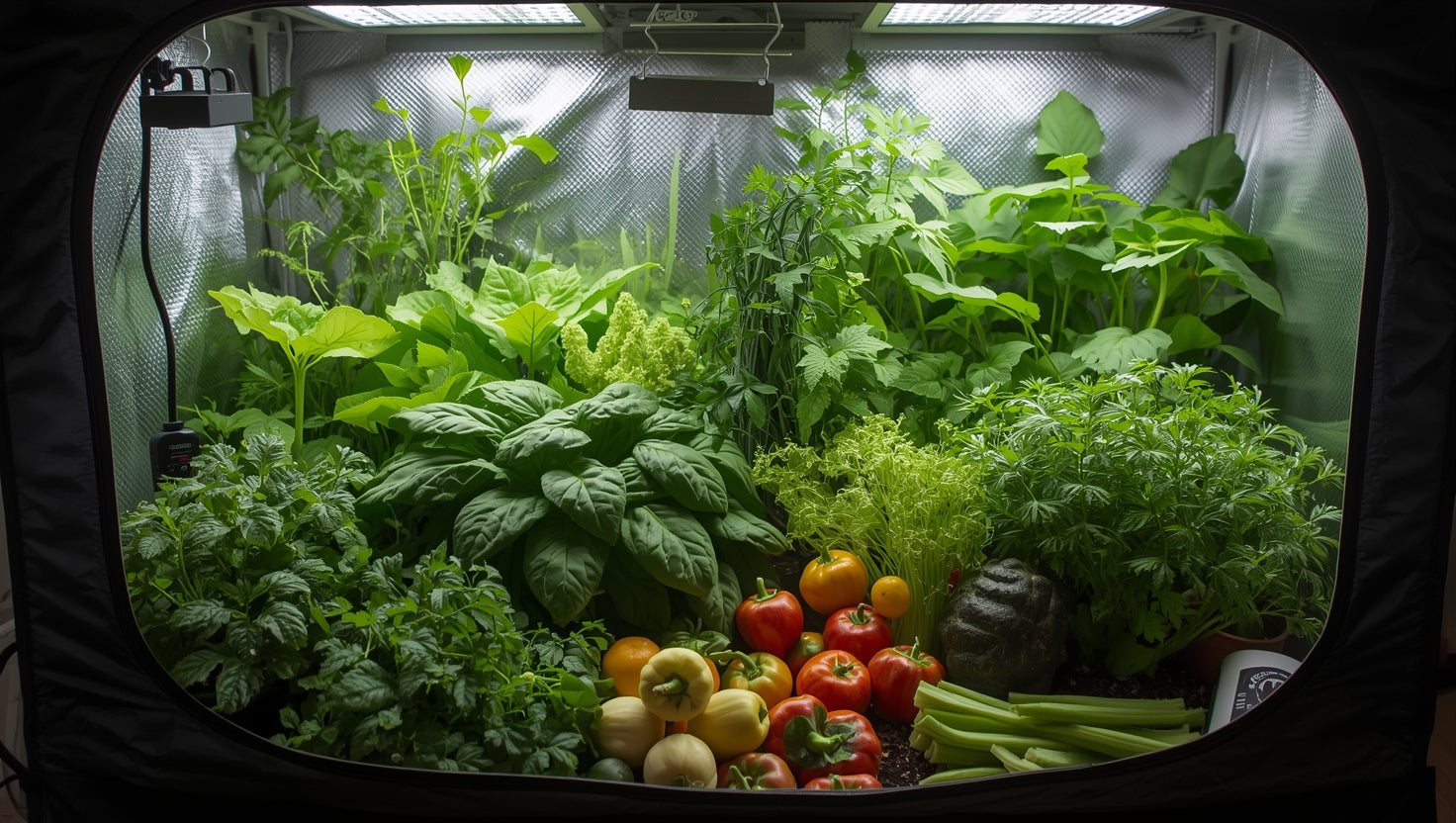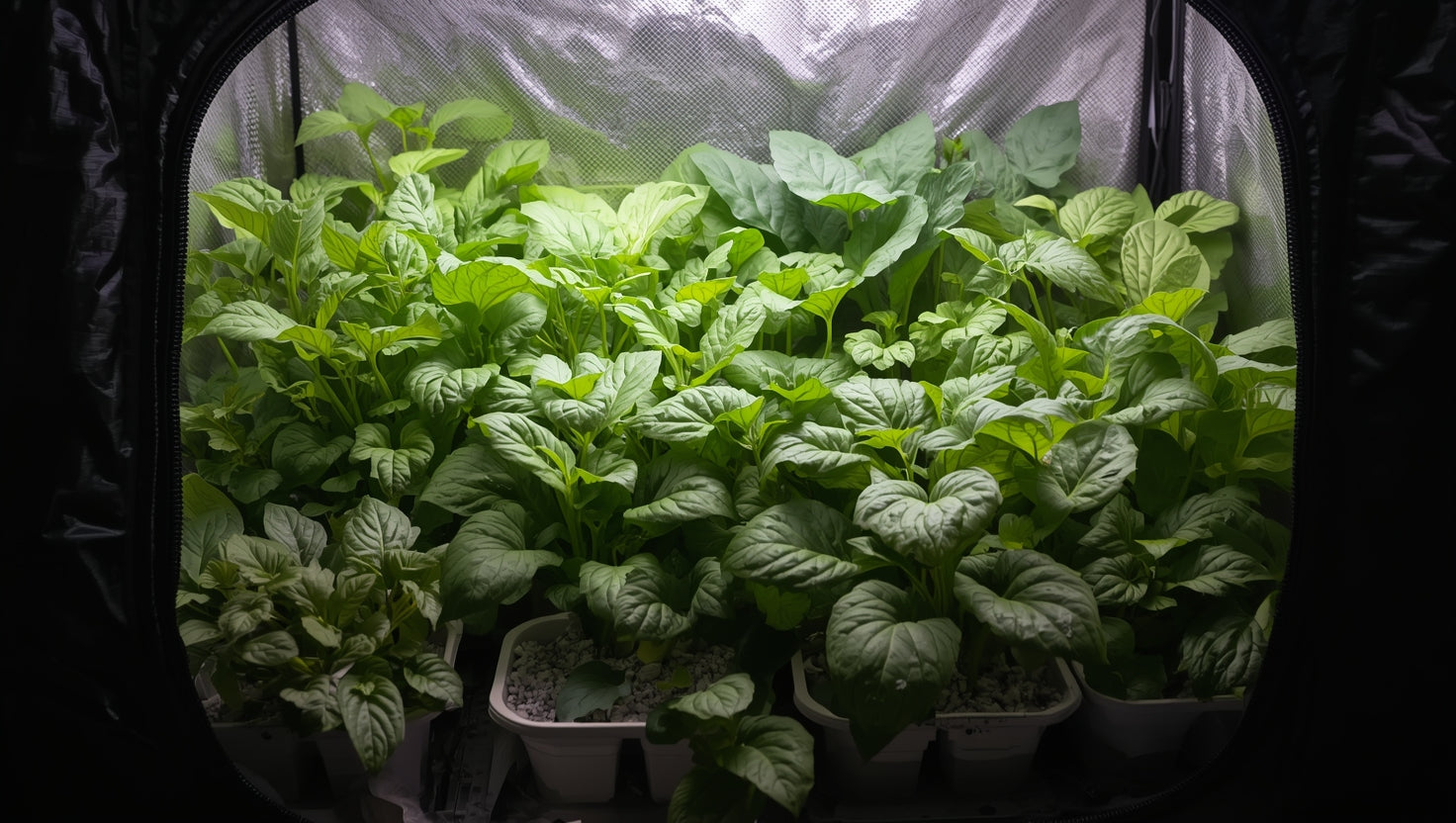
Indoor Greenhouse: The Ultimate 2025 Guide to Year-Round Growing Success
Have you ever wished you could harvest fresh vegetables in the dead of winter? Or grow tropical fruits regardless of your local climate? With an indoor greenhouse setup, you can create the ideal growing environment for any plant, any time of year. This comprehensive guide will walk you through everything you need to know about establishing your own indoor greenhouse system that delivers consistent, abundant harvests 365 days a year.
Why Choose an Indoor Greenhouse for Year-Round Growing?
Traditional outdoor gardening is subject to the whims of Mother Nature – seasonal changes, unpredictable weather, pests, and disease can all impact your growing success. An indoor greenhouse, however, puts you in complete control of the growing environment.
Key Benefits of Indoor Greenhouse Growing:
- Year-round harvests regardless of external weather conditions
- Complete climate control for optimal plant growth
- Protection from pests and disease that plague outdoor gardens
- Water conservation through controlled irrigation systems
- Space efficiency with vertical growing options
- Ability to grow exotic plants outside their native climate
- Consistent quality and yield with repeatable growing conditions
The foundation of an effective indoor greenhouse system starts with a high-quality grow tent. Gorilla Grow Tents provide the perfect enclosed environment to begin your year-round growing journey, with industry-leading durability and climate control features.
Creating the Perfect Indoor Greenhouse Environment
The key to successful year-round growing lies in maintaining optimal environmental conditions for your plants. Let's explore the essential components of an indoor greenhouse climate control system:
1. Temperature Management
Different plants thrive at different temperatures, but most common garden vegetables and herbs prefer daytime temperatures between 70-80°F (21-27°C) and slightly cooler nighttime temperatures around 60-70°F (15-21°C).
Temperature Control Solutions:
- GXi Temperature & Humidity Sensor for real-time monitoring with laboratory-grade precision (±0.3°C accuracy)
- Strategic placement of grow lights to manage heat distribution
- GXi Inline Fans with automated temperature response
- Insulated grow tent walls to maintain stable internal temperatures
The GXi ecosystem provides "adaptive climate control" capabilities that automatically maintain perfect growing conditions regardless of external weather changes or heat loads, according to the company's website.

2. Humidity Regulation
Humidity requirements vary throughout the plant growth cycle. Generally, seedlings and young plants prefer higher humidity (60-70%), while mature plants and flowering stages require lower humidity (40-50%) to prevent mold and disease issues.
Humidity Control Solutions:
- Automated humidifiers for low humidity periods
- Dehumidifiers or enhanced ventilation for high humidity periods
- Strategic watering schedules to influence humidity levels
- GXi-enabled fans that automatically adjust based on humidity readings
With the right equipment, your indoor greenhouse can maintain the ideal Vapor Pressure Deficit (VPD) – the relationship between temperature and humidity that directly impacts plant transpiration and nutrient uptake.
3. Airflow and Ventilation
Proper air circulation is essential in an indoor greenhouse to strengthen plant stems, prevent disease, and ensure even temperature and CO2 distribution throughout the growing space.
Ventilation Components:
- GXi Inline Fans for exhaust air removal
- Passive intake ports or active intake fans
- Oscillating circulation fans inside the tent
- Carbon filters for odor control and air purification
For most indoor greenhouse setups, the general rule is to exchange the entire volume of air every 1-3 minutes. The Gorilla Grow Tent Odor Control Package includes everything needed for proper ventilation and odor management.
4. Lighting Solutions
Unlike traditional greenhouses that rely primarily on sunlight, indoor greenhouses typically require artificial lighting to maintain consistent light cycles and intensity throughout the year.
Lighting Considerations:
- Gorilla Xi LED Grow Lights with customizable spectrum profiles for different growth stages
- Programmed light cycles to simulate natural seasonal changes
- Adjustable light heights for different plant growth stages
- Energy-efficient designs for reduced operating costs
The Gorilla Xi LED Grow Lights feature independently controlled channels that can be customized for vegetative growth, flowering, and terpene production, ensuring optimal light for every stage of plant development.
Setting Up Your Indoor Greenhouse System
Creating an effective year-round growing solution requires careful planning and setup:
1. Choose the Right Grow Tent Size
Your indoor greenhouse should be appropriately sized for your growing goals:
- Small Setups (2'x2' to 3'x3'): Perfect for herbs and a few small vegetables
- Medium Setups (4'x4' to 5'x5'): Ideal for the average home grower with 4-6 plants
- Large Setups (5'x9' and larger): For serious growers with substantial harvest goals
The Gorilla Grow Tent Pro line offers adjustable height features, allowing your indoor greenhouse to accommodate plants as they grow taller.
2. Select the Appropriate Growing System
Depending on your goals and experience level, choose between:
Soil-Based Systems:
- Traditional pots with quality potting soil
- Fabric grow bags for better root aeration
- Self-watering containers for consistent moisture
Hydroponic Systems:
- Bubble Flow Buckets for faster growth and higher yields
- Nutrient Film Technique (NFT) for leafy greens
- Deep Water Culture (DWC) for simplicity and effectiveness
Hydroponic systems typically produce faster growth and higher yields but require more technical knowledge and monitoring than soil-based systems.

3. Install Climate Control Equipment
Proper placement and setup of your climate control equipment is crucial:
- Mount exhaust fans and carbon filters near the top of the tent
- Position intake vents at the bottom for natural air flow
- Install circulation fans to prevent "dead air" zones
- Place temperature/humidity sensors at plant canopy height
- Connect all GXi-enabled devices to the Gorilla Grow Tent App for centralized control
The GXi ecosystem integrates all components into a seamless, intelligent growing system that responds automatically to changing conditions.
4. Implement Smart Monitoring Systems
Modern indoor greenhouses benefit from advanced monitoring and automation:
- GXi Temperature & Humidity Sensor for continuous environmental monitoring
- Smartphone app integration for remote monitoring and control
- Customizable alerts for environmental parameters that drift out of range
- Data logging to track conditions and optimize growing parameters over time
With the Gorilla Grow Tent App, you can monitor and control your indoor greenhouse from anywhere, ensuring optimal conditions are maintained even when you're away from home.
Optimizing Your Indoor Greenhouse for Year-Round Growing
To truly maximize the benefits of year-round growing, consider these advanced strategies:
1. Crop Rotation and Succession Planting
Rather than planting everything at once, stagger your plantings to ensure continuous harvests:
- Start new seedlings every 2-3 weeks for leafy greens
- Plant long-season crops alongside quick-growing varieties
- Plan your growing calendar to maximize tent space efficiency
- Consider dedicated areas for seedlings, vegetative growth, and flowering plants
2. Seasonal Adjustments
Even with a controlled environment, making seasonal adjustments can optimize your growing:
- Increase ventilation during summer months when ambient temperatures are higher
- Add supplemental heating during winter for optimal growing temperatures
- Adjust light cycles to mimic natural seasonal variations for certain plants
- Modify nutrient formulations based on plant growth stages and seasonal needs
3. Advanced Environmental Orchestration
The GXi ecosystem takes your indoor greenhouse to the next level with:
- Environmental Orchestration: Temperature and humidity sensors trigger intelligent responses from fans, lights, and other equipment
- Preventative Protection: Smart devices work together to prevent environmental disasters before they impact your plants
- Growth Stage Optimization: Automatically adjust light spectrum, VPD levels, and air exchange rates based on plant development phase
As noted on the Gorilla Grow Tent website, this system allows you to "access growing techniques perfected through thousands of successful harvests with one-touch presets, while maintaining complete control to grow your way."
Common Indoor Greenhouse Challenges and Solutions
Even the best-designed indoor greenhouse systems can encounter challenges. Here's how to address them:
1. Temperature Fluctuations
Challenge: Significant temperature swings between day and night or during power outages.
Solutions:
- Implement backup power systems for critical equipment
- Use thermal mass (water containers) to buffer temperature changes
- Install insulation around the grow tent in extreme environments
- Set up automated alerts through the GXi system for temperature deviations
2. Humidity Control Issues
Challenge: Excessive humidity leading to mold or too-dry conditions stressing plants.
Solutions:
- Adjust watering schedules (morning watering reduces nighttime humidity)
- Add additional ventilation during high-humidity periods
- Install a dedicated dehumidifier for persistent issues
- Use the GXi system's VPD management capabilities
3. Pest Management
Challenge: Even indoor greenhouses can experience pest issues from time to time.
Solutions:
- Implement strict sanitation protocols when entering the greenhouse
- Use preventive beneficial insects like ladybugs or predatory mites
- Install sticky traps for early detection of flying pests
- Quarantine new plants before introducing them to your indoor greenhouse
FAQ: Indoor Greenhouse Year-Round Growing
Q: How much does it cost to run an indoor greenhouse year-round? A: Operating costs vary based on size, equipment efficiency, and local utility rates. Most home growers report monthly electricity costs between $50-150 for a medium-sized setup. LED lighting and smart controllers like the GXi system significantly reduce costs compared to older technologies.
Q: Can I really grow any plant year-round in an indoor greenhouse? A: While you can grow most plants, some have specific requirements that make them more challenging. Fruiting plants like tomatoes and peppers thrive in indoor greenhouses, as do most herbs and leafy greens. Large root vegetables or extremely tall plants may require specialized setups.
Q: How much maintenance does an indoor greenhouse require? A: With automated systems like the GXi ecosystem, daily maintenance is minimal—typically 15-30 minutes for checking plants and systems. Weekly tasks include reservoir changes (for hydroponics), pruning, and system checks, requiring 1-2 hours total per week.
Q: Is an indoor greenhouse worth the investment compared to outdoor gardening? A: For year-round production, absolutely. While the initial investment is higher, the ability to grow continuously regardless of outdoor conditions provides a faster return on investment through consistent harvests and elimination of seasonal limitations.
Q: How does an indoor greenhouse compare to a traditional greenhouse? A: Indoor greenhouses offer superior environmental control and security compared to traditional greenhouses. They're less affected by external weather, provide better pest protection, and can be placed anywhere in your home without requiring permanent outdoor structures.
Conclusion: Embrace Year-Round Growing with an Indoor Greenhouse
An indoor greenhouse system represents the ultimate solution for consistent, year-round plant cultivation regardless of your local climate or available outdoor space. With the right equipment and setup, you can create the perfect environment for growing everything from everyday vegetables to exotic tropical fruits.
The combination of Gorilla Grow Tents and the integrated GXi ecosystem provides a professional-grade foundation for your indoor greenhouse that delivers exceptional results harvest after harvest. By taking control of your growing environment, you'll enjoy fresher produce, explore new plant varieties, and disconnect your growing schedule from the limitations of outdoor seasons.
Ready to start your year-round growing journey? Explore our complete selection of Grow Tent Kits designed specifically for creating the perfect indoor greenhouse environment.
Have you created your own indoor greenhouse system? Share your experiences in the comments below and join our community of year-round growers!

Lena Myles
I'm a mushroom enthusiast and home cook based in Oregon. I'm passionate about foraging and creating fungi-focused recipes, especially delicious, plant-based dishes using gourmet mushrooms like trumpet, shiitake, and oyster. When I’m not in the kitchen, you’ll usually find me wandering the woods in search of new wild flavors.


